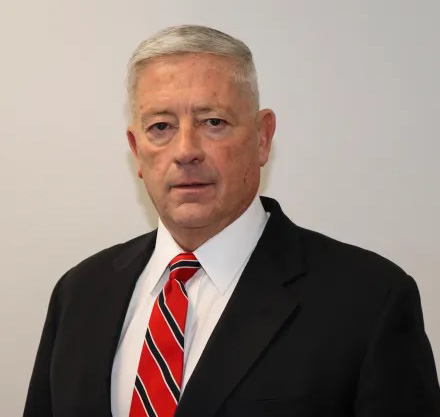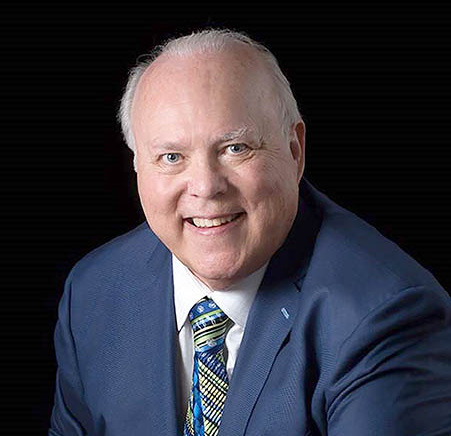As of December 2012
1. There has been discussion that this program is all about closing camps. Can you share the reason for the program and the changes that have been proposed?
- With the camp occupancy rate being 50.4 percent nationwide, a review of camp property utilization needs to be conducted as to how many camps and how many weeks/sessions of camp are offered.
- There are situations where a camp may need to be closed because of facilities, attendance, or programs.
- The NCAP program will be working with councils to identify each camp’s best usage.
- Its purpose is to help councils bring their camps to new levels of excellence in delivering Scouting’s promise to youth.
- It will help councils measure their effectiveness and allow them to create areas for continuous camp improvement.
- The bottom line is to get more Scouts to camp and provide them with a world-class experience.
2. What has been developed to support councils in evaluating their properties?
- As you may recall, two years ago the Second Century Camping Task Force was charged with evaluating all aspects of the camping program. From this study the strategic analysis process was developed.
- The strategic analysis process is designed to assist councils in evaluating:
- Program
- Staffing
- Facilities
- Financial sustainability
- Completion of the short form will help councils
- Evaluate their finance support for camp, which will include all expenses for the camping operation
- Study membership trends
- Evaluate camp attendance
- Conduct a market analysis, including a comparison of other camps in the area
3. What is the area director expected to be doing?
- Supporting his or her area’s leadership in guiding this program through the assessment.
- Assisting each council in improving its camping program.
- Providing the regional accreditation committee with pertinent information that would not be reflected in the short-form analysis or other application documents on individual councils and camp properties that would be important for the authorization process.
4. As we roll out the NCAP program, what is our timeline for success?
- Intent to Operate is submitted by councils by October 15 – updated list of those camps to operate this summer and when they will operate.
- Area assessment chair is recruited by October 1.
- Each council should recruit its local leadership to lead this program by January 1.
- A list of camp assessment team member prospects from local councils to the area should be completed by February 1.
- From February 1 through April 30, all leadership is recruited and training completed.
- All councils submit to the area that they are ready for their assessment by May 15.
- The area conducts the area camp assessment visit for resident camps in June/July/August (first couple of weeks of camp) and councils conduct their day camp and family camp assessments.
5. Where do I find the roles and responsibilities of council volunteers?
- Job descriptions for key positions are located in the Council Implementation Guide, which can be found online at the NCAP site (www.scouting.org/NCAP).
6. What is the role of the area camp assessment chairman?
- You can find his or her roles and responsibilities in the Area Implementation Guide, available online at the NCAP site.
- Overall, the role is to:
- Coordinate and oversee implementation of the area camp accreditation process, primarily the camp assessment visits.
- Recruit and oversee area camp assessment teams, recruiting an adequate number to visit all resident camps in the area.
- Participate in the region accreditation process and serve as a member of the region accreditation team or have someone from the area represent him or her.
- Support council self-assessment. Help to provide training for councils and provide advice/counsel as requested.
- Insist on requests for information from the region on any waivers or variances.
7. What should the councils be doing related to this program?
- Recruiting an NCAP chair to coordinate the program.
- Coordinating the area’s assessment process for resident camps.
- Conducting the council self-assessment process with day camps/family camps.
- Verifying listing and dates of camps for 2013.
- Submitting a list of potential assessment team members to the area chair.
- Reviewing and documenting the standards to see which ones support each camp for 2013.
8. How does the camp accreditation program work?
- There are two parts to the program:
- First—application and authorization
- Second—assessment and accreditation
- The application and authorization part includes:
- Completing the application
- Completing the Strategic Analysis Short Form
- Setting goals for continuous camp improvement
- The assessment and accreditation part includes:
- Working with the new camp standards
- Conducting the annual camp assessment visit
- Area representatives visit the resident camps.
- Council representatives visit the day and family camps for the self-assessment.
- All camps will conduct the assessment and receive an accreditation status.
9. Who will be required to be a part of the NCAP program?
- All councils must submit their Intent to Operate—submitting their camps and dates for operation for the 2013 season.
- Everyone will use the new camp standards for summer of 2013 camps.
- Only selected councils will go through the full application and authorization process.
10. Does the council camp have to go through the assessment process annually even if it has an authorization for five years?
- Yes, the assessment process visit is conducted annually. It is similar to multi-year funding (United Way)—we will review programs annually but do the application in a multi-year process.
11. What training opportunities are there to help with the understanding of the program?
- Regions and areas are conducting webinars, face-to-face training sessions are being held at area meetings, and special sessions are being held to provide orientation for volunteers and professionals on the program.
- If you have a training need that is not being met, contact your area assessment chairman.
12. Will there be a sample of a completed application to assist councils in completing theirs?
- We will post to the NCAP website sample applications to show the councils what a completed application should look like.
13. What is the difference between the former visitation process and the new assessment process?
- The idea is for some of the paperwork to be reviewed prior to being on site.
- The focus of the assessment visit at camp is for the assessment team to see the programs in operation and visit with staff, leaders, and Scouts.
- They will also be reviewing continuous camp improvements for implementation and will be serving as a resource for councils and their camping programs. This helps in validation and monitoring of the council’s strategic plan.
- There is more leeway based on the new standards for meeting the intent of the standard.
14. When will those councils that have been selected by the areas complete their Application for Authorization?
(There is a different readiness level with each council and area leadership. We will adapt the schedule to fit those involved once the applications are mailed.)
- The goal is to mail the application and related documents to the selected councils in January to stay away from their year-end work.
- The application would be submitted online to the national Outdoor Programs site and shared with the region accreditation committee in March.
- The applications and related documents would be reviewed by the regions, with area involvement, and an authorization would be made by the region and shared with the council and area in May.
15. What is the role of the area with the new application and authorization process?
- It is a region’s choice to decide how it wants to have representation with the region accreditation committee. It is recommended that the area assessment chairman either serve on the region accreditation committee or have someone from his or her area represent the area in the process. If the area wants to have a different person represent him or her on the region committee, it is his or her option. Some regions have the area assessment chairman and the area vice president of outdoor programs serving on their region accreditation committee. We also feel the importance of having some subject-matter experts covering finance, facilities, and other key areas for oversight.
- This is the key role of the region in leading this process. Areas will provide guidance and support when requested for their own councils.
16. When will the camp assessment visit occur?
- It will be scheduled in the spring and held in the first couple of weeks of the camp’s opening.
17. Are there any tools to help with the continuous camp improvement process?
- Yes—the CPMS, which stands for “Council Properties Management System.” This is not new. CPMS is a proprietary database software application developed by the BSA to manage camp maintenance and improvement. It is an excellent vehicle for documenting the work that comes out of the Camp Facilities Evaluation Tool. One of the primary functions of the system is the recording of each facility in camp along with the systems (wall systems, roof systems, HVAC systems, etc.) that support it. This is an ideal place to keep detailed records of the scope, time frame, and cost of each facility.
- Another option is to use the assessment team to gather the information that is necessary to populate the database fields. Information on the CPMS is linked on the NCAP site.
18. Can you clarify how the financial sustainability requirements of the camp will affect its Authorization to Operate?
- We are developing support for council progress reviews with key talking points about finances.
- We are working with the Finance Impact Department on standardizing how income and expenses are recorded in the General Ledger. One of the best ways that this program can help a council is for it to understand the effect that the camp has on their overall council budget. No matter if it is positive or negative, the council board needs to know the overall effect.
- The first step is to “calibrate” your accounting practices by assuring that all camp-related income and expenses are accounted for in the camp operating budget. This includes depreciation, maintenance, and other sources of income such as royalties and endowment revenue. The next step is to ascertain if the camp is operating at breakeven or better. If so, then you are in good shape from a financial sustainability standpoint. If not, you have to determine if the council can either reduce expense (without sacrificing program quality or adding to deferred maintenance) or increase revenues. If the council can, then this plan becomes part of the improvement process. It gets documented and is periodically reviewed to determine compliance with the plan.
- If not, then a hard look at changing the business model is in order. Anything that makes sense and is doable should be considered.
- The area director’s role is to encourage an honest evaluation, being neither pro- nor anti-camp for any particular facility. The area director is needed to keep the process grounded. The area director assists in “calibrating” the accounting practices within the area and across the region.
19. How does the Camp Facilities Evaluation Tool work?
- First of all, the version on the website is an early draft. The concept is the same, but the scales have been expanded to better accomplish our goal, which is to raise the quality of our facilities commensurate with the quality of our program.
- A second, more detailed look is developed as a part of the assessment process. In this case, the council will go through the camp in a facility-by-facility evaluation. It will take pictures, make notes, and detail needs and recommendations.
- Keep in mind this is not intended to be a one-year fix. Improvements will be scheduled in negotiations between the team and the council. The important thing is the development of a plan that moves the camp forward faster than it is depreciating, a plan that is also financially responsible. Objectivity, documentation, and accountability lie at the heart of this process.
- Although comparing the scores developed in step 1 and step 2 will be of value, the overall score of a camp is less important than finding the “D” and “F” facilities and getting them on track for renovation or removal.







